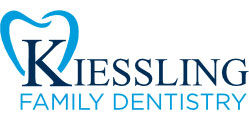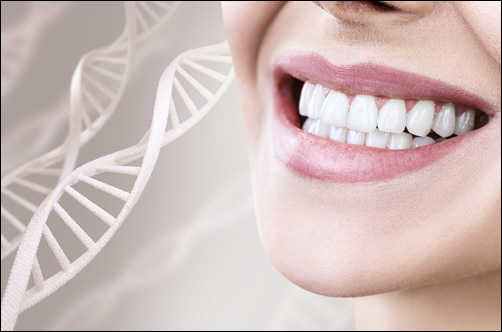The Role Genetics Plays in Oral Health and Achieving a Healthy Smile
Genetics influences many aspects of our health, including our oral health. Your genetic makeup can affect the size, shape, and alignment of your teeth, as well as the strength of your enamel and susceptibility to gum disease or tooth decay. While good dental habits are essential for a healthy smile, understanding the role genetics plays helps you take a proactive approach to address specific oral health needs, preventing oral cancer, etc.
Genetics and Tooth Structure
 Genetics determines the basic structure and development of your teeth. The shape, size, and spacing of your teeth, as well as your bite, are all inherited traits. If your parents had crowded or misaligned teeth, you may also be more likely to experience these issues. Crowded teeth can make brushing and flossing difficult, increasing your risk of cavities and gum disease. Orthodontic treatment, like braces or aligners, can help correct these issues and create a well-aligned, easy-to-clean smile.
Genetics determines the basic structure and development of your teeth. The shape, size, and spacing of your teeth, as well as your bite, are all inherited traits. If your parents had crowded or misaligned teeth, you may also be more likely to experience these issues. Crowded teeth can make brushing and flossing difficult, increasing your risk of cavities and gum disease. Orthodontic treatment, like braces or aligners, can help correct these issues and create a well-aligned, easy-to-clean smile.
Enamel strength also has genetic links. Some people inherit naturally strong enamel, while others may have weaker enamel that’s more susceptible to wear and decay. Weak enamel increases the likelihood of cavities, tooth sensitivity, and discoloration. If you have weaker enamel, your dentist may recommend fluoride treatments or specific dental products to strengthen and protect your teeth.
Gum Health and Genetics
Gum health is another area influenced by genes. Studies show that about 30% of the population has a genetic predisposition to gum disease, or periodontal disease. People with this predisposition may be more likely to experience inflammation, gum recession, and bone loss around the teeth, even with good oral hygiene.
If gum disease runs in your family, regular dental checkups and professional cleanings become especially important. Your dentist can identify early signs of gum disease and provide preventive treatments to help manage inflammation. Adopting daily habits like brushing, flossing, and using antimicrobial mouthwash can also support gum health and minimize the impact of genetic factors.
Susceptibility to Cavities
Some people are more prone to cavities due to inherited traits. The shape and depth of tooth grooves, or fissures, can affect how easily plaque builds up. Deep grooves are more challenging to clean thoroughly, allowing bacteria to settle and lead to cavities. Additionally, your saliva’s composition, which is partly genetic, plays a role in oral health. People with low saliva production or less effective antibacterial enzymes in their saliva may experience more cavities.
If you have a higher risk of cavities, consider preventive treatments like dental sealants for deep grooves and regular fluoride treatments to strengthen enamel. Maintaining a low-sugar diet and drinking plenty of water also support cavity prevention.
Embracing Proactive Care
While you can’t change your genetics, understanding its role in your oral health empowers you to take proactive steps. Regular dental visits, personalized preventive care, and good daily habits can help manage genetic risk factors, keeping your smile healthy and strong. Genetics may set the stage, but with consistent care, you have the power to protect and enhance your smile for a lifetime.


